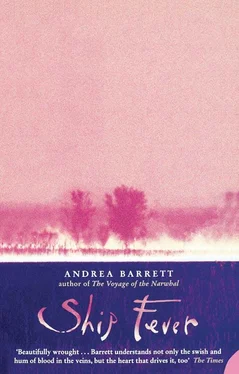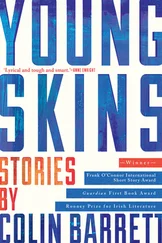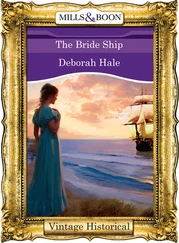Do you wish you’d stayed?
Yes. No. Yes. How could we stay? We had our own lives. But it’s true that despite that we thought of staying, talked of staying. On our knees on the kitchen floor, scrubbing the accumulated dirt and dog saliva and ant tracks and juice from a surface that for months had seen only the briefest sweeping, we looked at each other and said, “Anyone could walk into this house and tell there are no women here.” And this was a strange thought, for both of us — that much of what had gone wrong had to do with the absence, not only of women, but of women willing to do those things that have always been women’s work. Our father’s wife was a busy woman, successful in her own way and seldom home. We were busy ourselves, and gone. And so there was no cleanliness, no order, no smells of good food cooked with care and eaten with pleasure, no signs of the raising of children, no curtains ironed, no flowers tended and cut for the tables. No one to relish a clean yellow counter shining in the sun. Our father could not do one thing to make life pleasant or comfortable for himself.
Didn’t you do what you could?
We abandoned him.
Didn’t he welcome your help?
We abandoned him.
Wasn’t he glad to have you there?
He died one August weekend, when we were absent and his wife was present. She was furious with us for coming to visit and then furious that we couldn’t stay. She’d moved back to the house for his last weeks, and when we returned for the funeral she opened the door as if to let us in and then started to say something and flushed and slammed the door on us. She couldn’t keep us from the church, but she wouldn’t let us into the house and so we stayed outside. We drove around the lake, up into the vineyards on the hill near where our old place had been, and when it grew dark we simply stopped the car where we were. There was no one around and the sky was very clear. We took two blankets out of the trunk and spread them on the ground and lay there, talking and holding hands. We slept, we think, toward morning, because we were not awake when the dew fell, and we woke covered with cool water. The sun crept over the hills across the lake, lighting the mist that filled the valley. We thought we sensed you there, but we weren’t sure.
After the funeral, we tried once more to come into the house. We meant to take the dogs, about whom our father had been very worried, and the portrait of you, and a few other small mementos. But again his wife would not let us in. She had already found homes for the dogs, she said. She had already let go of the lease on the house, already arranged for the sale of the few pieces of furniture that were left and the removal of the things she wanted to her new apartment in Syracuse. She had a new life, she said, and she wanted to start it, and that new life didn’t include us. So we left.
But last week, one of us said over the phone to the other, “We should go back, it’s been a year.” So we made arrangements and met each other here, and although there were strangers living in our old house, as there have been for many years, and although of course the house where our father spent his last days had been cleaned and rented to someone else, and although the dogs were gone and everything we’d ever known, we thought we had done the right thing.
We rented this boat at the dock near the post office, and as soon as we’d sailed into deep water, both of us realized you were near. One of us took the tiller and the other handled the sheets.
You were always good sailors.
This is a lake on which it is impossible to get lost. But so much else is gone, all the remnants and relics of our family. The house, of course: but also your mother’s rugs and sofas and chairs, and your lamps and bureaus and paintings and knickknacks, and Aunt Agnes’s cups, and our old books — everything, really. And when our father’s widow disappeared from our lives and disposed of the dogs, it was as if our family had never existed. It was as if we’d imagined our history. All that is left is the shared set of memories we have of our last days with our father in that house that wasn’t his house.
He asked after you, during our last day with him. He thought we were back in our old house, and he wanted to look at your picture in the living room. We sneaked downstairs and took the picture from the hall and dusted it and brought it upstairs to him. We told him we’d brought it to him so he wouldn’t have to move. We did not have the heart to tell him that there was no living room, filled with books and our family’s things, with your picture hanging from its cord.
Was he glad to see me?
Of course he was. Have you seen him since then?
No. [4. The White Dog]
Were we really speaking with Suky? Was Suky really speaking with us? Bianca says yes, absolutely. I say yes, sort of, maybe.
Nothing happened after our sail on the lake — we didn’t see our father’s ghost or feel his presence or even reach any sort of peace or understanding. We were comforted, of course; Suky’s voice fell on us like balm. But I believed that what we’d done was wrong, and even as Bianca couldn’t help showing her triumph at having lured me into speaking with Suky, I couldn’t help resenting it.
That night we shared a room with two beds in a new motel where no one knew us. We slept uneasily and guiltily, aware that we had left things undone and that there were people in the village whom we should have visited. The next morning I dropped Bianca at the airport and then I drove home.
Now I can’t talk to Bianca about what went on then, or earlier, because Bianca is gone. The stories we’ve made of our past have come to nothing. A month after we met in Hammondsport for the anniversary of our father’s death, she fell in love with a landscape painter our father’s age and moved with him to a house on a cliff in Costa Rica, where she has no phone.
I live back here in Hammondsport now. Around the time that Bianca took off I quit my job and decided to move; Boston, where I’d lived for more than a decade, suddenly seemed like a place where I’d set no roots. When my colleagues pressed for reasons for my decision, I told them I’d inherited something from my father that required my attention. Quite quickly I learned that any mention of his death would stop the conversation. No one will pass the screen thrown up by that word, I’ve learned. Behind it I could and did — still do — conceal my confusion.
Only Bianca felt entitled to pry. When I told her my plans, she told me I was making a big mistake; this, after all the complaining she’d done about my job. The last time we spoke, I was in my lab in Boston and she was at the Houston airport. She said, “You’re crazy. There’s nothing in that place for you.”
“It’s what I want to do,” I said. “Why is it any stranger than moving to Costa Rica with someone you hardly know?”
“Because it is, ” she said. “Those people — you’ll always be who you used to be, for them. Is that what you want?”
This, like the predictions she’d made in Boston, would turn out not to be true. But even then, not knowing that, I said, “Would that be so bad? Is that worse than being with people who don’t know anything about us?”
“Oscar knows me,” Bianca said. “He knows what I want him to know.” Meaning, I think, that he understood her in terms of the stories we’d manufactured together.
For a minute we were silent, listening to the low roar of airport noise and the hum and whisper of the instruments in my lab. “Come with me,” Bianca said finally. “I’m all for your getting out of that lab, but it’s stupid to go back home. Oscar wouldn’t mind if you came to stay with us.”
Читать дальше
Конец ознакомительного отрывка
Купить книгу












